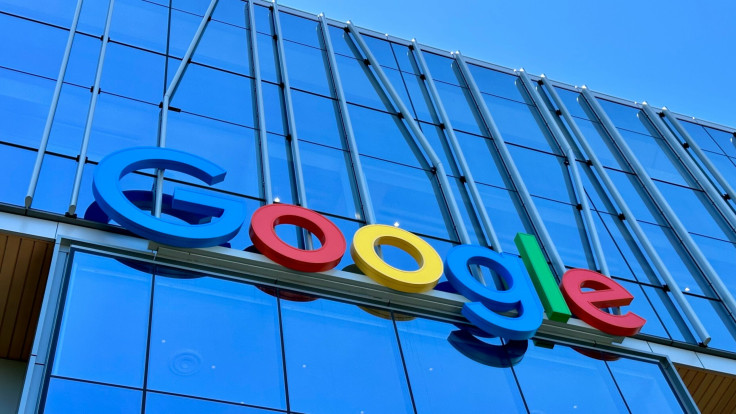US Supreme Court Snubs Google — Epic Forces Major Changes To Android Rules
Supreme Court rejects Google's bid to delay Play Store reforms, clearing the way for Epic Games' landmark antitrust victory to reshape Android's app economy.

A landmark ruling from the United States Supreme Court has blocked Google's attempt to delay sweeping changes to its Android app policies, forcing a massive shift in how its Play Store operates. The decision represents one of the most significant antitrust setbacks in Google's history and could reshape for how digital marketplaces may function in the years ahead, especially on Android devices.
US Supreme Court Refuses to Halt Google Play Store Reforms
Google's legal foundations were shaken on 6 October 2025 when the Supreme Court declined to pause key parts of a lower court injunction requiring the company to reform its app store practices. The decision means that Google must begin implementing changes ordered by US District Judge James Donato in October 2024.
The tech giant had argued that enforcing the injunction immediately would cause 'irreparable harm' to Android's security, reputation, and user base. However, the Supreme Court issued a brief denial that now allows the injunction to proceed while Google continues its appeal.
As a result, Google must begin rolling out the mandated reforms later this year, with full compliance expected by July 2026. The refusal to grant a stay comes after months of litigation in which Google sought to convince appellate judges that the injunction would damage the Android ecosystem. The Court's decision suggests that the Justices were unconvinced, leaving Google with little choice but to restructure the Play Store as ordered.

What the Injunction Demands of Google
Judge Donato's injunction aims to reduce Google's control over how apps are distributed and monetised on Android devices. It requires Google to allow developers to include external links within their apps, enabling users to bypass Play Store billing and avoid fees that often range between 15 and 30 per cent.
These reforms followed a lawsuit filed by Epic Games against Google, which the jury found in favour of Epic Games. But the changes go further. This injunction also compels Google to permit rival app stores to be downloaded through the Play Store starting in July 2026. It must also make its app catalogue available to competitors and refrain from offering exclusive deals or incentives, such as revenue sharing or preinstallation benefits, that discourage manufacturers or developers from promoting alternative stores.
For three years, Google is prohibited from entering into agreements that favour its own marketplace or disadvantage others. In essence, the ruling dismantles the protective walls that have long upheld the Play Store's dominance. Regulators and courts hope this creates an environment that benefits developers through fairer terms and offers consumers greater freedom of choice.
Epic Games Lawsuit vs Google
Epic Games started its lawsuit against Google in August 2020, accusing the tech giant of maintaining a monopoly through its Play Store and payment systems. This case was similar to Epic's earlier dispute with Apple but focused specifically on Android's distribution model.
In December 2023, a jury found that Google had violated US antitrust laws by unfairly tying its billing system to the Play Store and discouraging competition from third-party stores. Judge Donato followed up with his injunction in October 2024. Google then appealed to the Ninth Circuit Court of Appeals, which upheld the ruling in July 2025.
The company then turned to the Supreme Court as a last resort, asking it to delay implementation until the broader appeal could be resolved. The Supreme Court's refusal effectively closes that door, at least for now.
Epic and its supporters argue that Google's claims about user security are overstated. Google insists that its restrictions protect users from malware and data theft, but Epic contends that those fears are exaggerated and primarily serve to justify Google's monopoly.
Tim Sweeney, Epic's chief executive, called the Supreme Court's decision as a milestone victory, tweeting: 'The Supreme Court has thrown out Google's stay request. Starting October 22, developers will be legally entitled to steer US Google Play users to out-of-app payments without fees, scare screens, and friction - same as Apple App Store users in the US!'
The Supreme Court has thrown out Google's stay request. Starting October 22, developers will be legally entitled to steer US Google Play users to out-of-app payments without fees, scare screens, and friction - same as Apple App Store users in the US! https://t.co/yO1g1NqXt3 pic.twitter.com/S64YvQLyYM
— Tim Sweeney (@TimSweeneyEpic) October 6, 2025
Impact on Google, Developers, and Users
For Google, the ruling represents a major financial and strategic blow. The Play Store generates billions each year through service fees on in-app purchases and subscriptions. Opening Android to third-party stores and alternative payment systems could substantially reduce those earnings.
Google has also warned that such openness could compromise user safety by allowing potentially harmful or pirated apps to reach consumers. Despite these concerns, the company must now prepare for compliance while it continues its appeal, which it has until 27 October 2025 to file.
While this is a major blow to Google, the legal battle is not yet fully over.
© Copyright IBTimes 2025. All rights reserved.




















